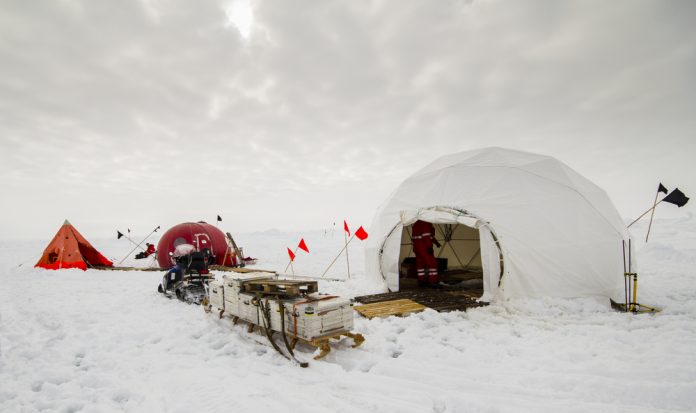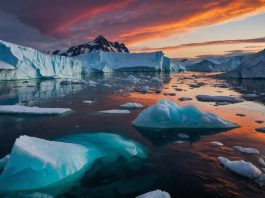In a landmark move, the European Union is establishing the European Polar Coordination Office (EPCO) in January 2025.
Located in Sweden’s Arctic region, this initiative underscores the EU’s dedication to understanding and addressing the impacts of climate change on the planet’s polar ecosystems. Operating from Umeå University’s Arctic Centre, EPCO will act as a hub for coordinating European polar research and facilitating collaboration between scientists, policymakers, and local communities.
The new office builds on the achievements of EU-PolarNet 2, which concluded in 2024 and will manage the EU Polar Cluster – a network of projects focused on polar science. By aligning polar research priorities with climate challenges, EPCO aims to enhance Europe’s leadership in studying these high-latitude regions.
The fragile polar ecosystems
The Arctic and Antarctic are warming at rates far exceeding the global average. In the Arctic, temperatures are rising three times faster, resulting in extensive ice loss. This phenomenon not only disrupts local ecosystems and communities but also has global implications, including rising sea levels and extreme weather patterns.
EPCO’s research agenda will prioritise understanding these changes, focusing on critical areas such as melting glaciers, thawing permafrost, and declining sea ice. These studies are essential for predicting future climate trends and developing strategies to mitigate their impacts.
Delving into the past to secure the future
One of the most ambitious European initiatives in polar research is the Beyond EPICA project, which seeks to drill deep into Antarctic ice to uncover the Earth’s climate history. Coordinated by a team of scientists from 10 European nations, this project aims to extract ice that is over a million years old.
These ancient ice cores contain invaluable data about the Earth’s atmospheric composition and temperature fluctuations over millennia. By analysing these samples, researchers can gain insights into how the planet’s climate systems have evolved and identify patterns that may help predict future changes.
The fieldwork, conducted in the harsh environment of eastern Antarctica, involves drilling thousands of meters into the ice under extreme conditions. Despite the logistical challenges, the project represents a critical step in understanding how to adapt to and mitigate climate change.
Integrating Indigenous knowledge into polar research
A pivotal aspect of modern polar research is the inclusion of indigenous perspectives. Indigenous communities, which make up about 10% of the Arctic’s population, have long observed and adapted to environmental changes in these regions. Their knowledge provides unique insights into the interplay between ecosystems and climate.
Collaborative efforts with indigenous groups, such as the Saami Council, ensure that research respects cultural traditions and upholds community rights. This approach not only enriches scientific understanding but also promotes sustainable and inclusive research practices.
Strengthening global collaboration
The establishment of EPCO reflects Europe’s determination to lead in polar research. However, addressing the challenges posed by a warming planet requires global cooperation.
By fostering partnerships between scientists, governments, and local communities, EPCO aims to create a unified response to the threats facing the polar regions.
Through projects like Beyond EPICA and its coordination of the EU Polar Cluster, EPCO will play a central role in advancing scientific knowledge, guiding policy decisions, and promoting international collaboration.
The work carried out under its aegis will not only protect the polar ecosystems but also provide critical insights for addressing climate change on a global scale.
As the polar regions face unprecedented threats from climate change, initiatives like EPCO represent a beacon of hope. By prioritising research, fostering collaboration, and integrating diverse perspectives, the European Union is setting a benchmark for polar science.
These efforts will be instrumental in unlocking the secrets of the Earth’s climate history and shaping strategies to safeguard the planet’s future.





